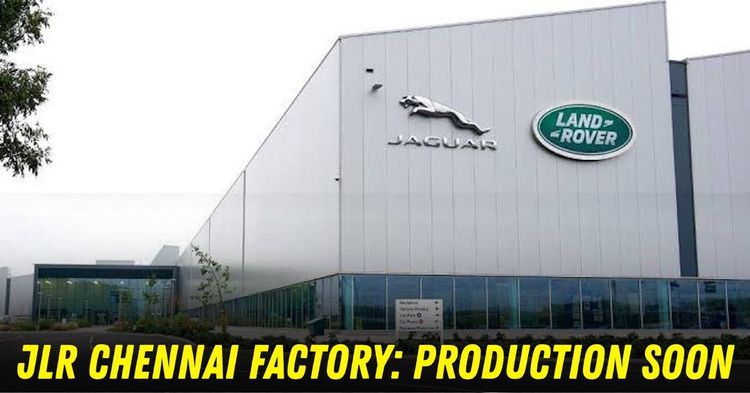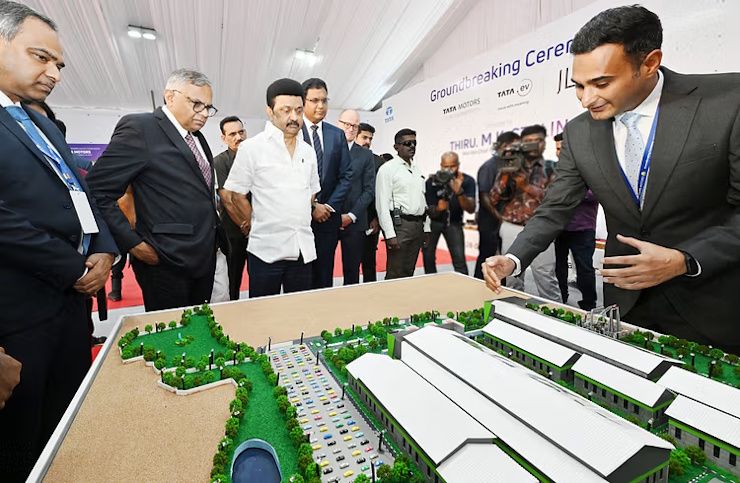Jaguar-Land Rover's New Chennai Factory: Production Plans And Timeline Revealed


Jaguar Land Rover (JLR), the luxury carmaker owned by Tata Motors, will start assembling its premium vehicles at a new plant near Chennai from early 2026. The move marks a significant shift in JLR's India strategy and is part of Tata Motors’ larger plan to strengthen its local manufacturing footprint for both internal combustion and electric vehicles.

The new plant is located in Ranipet, Tamil Nadu, and forms part of a ₹9,000 crore investment that will be spread over five years. JLR’s current local assembly takes place at Tata’s facility in Pune, but operations will now transition to this upcoming facility. Initial production will focus on models like the Range Rover Evoque and Velar, with an estimated annual capacity of around 30,000 units.
The Ranipet facility is being designed with long-term flexibility in mind. The first phase will cover 70 acres out of the total 470-acre site. Over time, Tata Motors aims to scale this plant to support both JLR and Tata’s premium electric vehicle ambitions. By the time the second phase is rolled out, expected after the Tamil Nadu assembly elections, the facility could have the capacity to produce more than 250,000 units annually.
This shift in location and capacity also brings logistical and cost advantages. Local assembly allows JLR to sidestep the steep import duties that apply to fully built imported vehicles, which can go as high as 110 percent. Instead, CKD (completely knocked down) kits attract a significantly lower duty rate. This cost difference can be crucial in making JLR’s luxury offerings more price-competitive in the Indian market.

In recent years, India has emerged as a bright spot for JLR. The brand reported its best-ever yearly performance in the country in FY 2024–25, selling over 6,100 units, a 40 percent year-on-year growth. Models like the Defender and the full-size Range Rover have contributed significantly to this performance. With local assembly of more models on the horizon, JLR is likely aiming to push sales further while improving margins.
The strategic location of the plant also adds to its appeal. Tamil Nadu is already a well-established automotive hub, often referred to as the "Detroit of Asia." With strong logistics, supply chains, and infrastructure already in place, the Ranipet plant will benefit from being part of a larger ecosystem that includes many of India’s top auto-component manufacturers.
The facility will also be geared for the future. Tata Motors plans to manufacture its next-generation electric vehicles, including the Avinya range, at this plant eventually. This will allow both Tata and JLR to consolidate manufacturing resources and tap into the growing demand for premium EVs.
For now, the focus is on a seamless transition of JLR’s CKD operations to the Chennai region. As more models get added to the local assembly list, customers in India can expect shorter waiting periods, better service infrastructure, and potentially lower prices.
The Chennai plant is not just about assembling more vehicles. It reflects Tata Motors’ commitment to making India a key part of its global strategy. Whether for conventional luxury SUVs or upcoming EVs, the groundwork being laid at Ranipet could play a central role in the future of JLR and Tata’s premium vehicle aspirations.